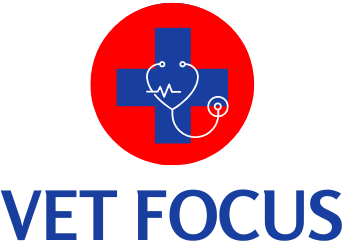Veterinary school is an exciting and challenging journey, but it takes more than theoretical knowledge to thrive. To succeed as a veterinarian, mastering a mix of clinical, interpersonal, and technical skills is crucial. This blog dives into the top 10 essential skills every vet student should master, ensuring you're ready to excel in your studies and future career.
For comprehensive resources to boost your learning, explore the Vet Focus Vet Bundle – a trusted resource for over 100,000 veterinary students.
1. Clinical Knowledge
What It Is
Clinical knowledge involves understanding animal anatomy, physiology, pharmacology, and pathology to diagnose and treat various health issues.
How to Develop It
- Stay updated with veterinary textbooks and journals.
- Regularly attend practical sessions and observe clinical procedures.
- Join study groups to review cases and discuss challenging topics.
Why It Matters
Your foundation in clinical knowledge determines how effectively you can assess and treat animals during rotations and in real practice.
2. Animal Handling and Behavior
What It Is
Knowing how to handle and interpret animal behavior is vital to ensuring the safety of both the animal and the handler.
How to Develop It
- Observe animals during clinical rotations or internships.
- Practice humane handling techniques on different species.
- Learn to read body language cues in pets, livestock, and exotic animals.
Why It Matters
Proper handling reduces stress for animals and improves treatment accuracy.
3. Communication Skills
What It Is
Strong communication skills help veterinarians explain diagnoses, treatments, and recommendations effectively to pet owners and colleagues.
How to Develop It
- Role-play client interactions with peers or mentors.
- Practice simplifying complex medical terms for non-veterinary audiences.
- Actively listen to feedback from clients and peers.
Why It Matters
Clear communication builds trust with pet owners and ensures better compliance with treatment plans.
4. Problem-Solving and Critical Thinking
What It Is
Veterinarians often face situations where they must quickly diagnose and treat animals with limited information.
How to Develop It
- Work on clinical case studies and real-world scenarios.
- Practice creating differential diagnoses during rotations.
- Use decision-making frameworks to tackle challenges.
Why It Matters
Critical thinking helps you make informed decisions that can save an animal's life.
5. Time Management
What It Is
Balancing coursework, clinical rotations, and personal life requires excellent time management skills.
How to Develop It
- Use planners or digital tools to organize your tasks.
- Prioritize assignments, study sessions, and relaxation time.
- Avoid procrastination by setting realistic deadlines.
Why It Matters
Efficient time management reduces stress and allows you to focus on learning.

6. Technical Skills
What It Is
This includes mastering hands-on tasks such as administering medications, suturing, and using diagnostic tools.
How to Develop It
- Practice in simulation labs and clinical rotations.
- Learn under the supervision of experienced veterinarians.
- Familiarize yourself with common veterinary tools and equipment.
Why It Matters
Technical skills are the backbone of effective veterinary care.
7. Teamwork and Collaboration
What It Is
Veterinarians often work as part of a team with veterinary technicians, assistants, and other professionals.
How to Develop It
- Participate in group projects and clinical teamwork exercises.
- Understand the roles of other team members in a veterinary clinic.
- Develop conflict resolution and leadership skills.
Why It Matters
Collaboration ensures smooth clinic operations and better patient outcomes.
8. Stress Management
What It Is
Veterinary school and practice can be emotionally and physically demanding, requiring resilience and effective stress management techniques.
How to Develop It
- Practice mindfulness or meditation regularly.
- Seek support from mentors or peers when needed.
- Focus on work-life balance and set boundaries.
Why It Matters
Effective stress management helps maintain mental health and prevents burnout.
9. Financial Awareness
What It Is
Veterinary students should understand the financial aspects of their career, including student loans, clinic operations, and client cost considerations.
How to Develop It
- Attend workshops on financial planning for veterinary professionals.
- Learn about pricing strategies for veterinary services.
- Budget your expenses during vet school.
Why It Matters
Understanding financial concepts prepares you for the realities of running or working in a clinic.
10. Adaptability and Lifelong Learning
What It Is
The veterinary field evolves constantly, with new technologies, treatments, and diseases emerging.
How to Develop It
- Stay updated by attending conferences and continuing education programs.
- Be open to feedback and new learning opportunities.
- Regularly review advancements in veterinary medicine.
Why It Matters
Adaptability ensures you remain relevant and effective in a fast-changing field.
Conclusion
Mastering these 10 essential skills will set you on the path to becoming a successful veterinarian. Start building these skills early in vet school, and seek out resources like the Vet Focus Vet Bundle to support your journey.
For more tips, guides, and learning materials, visit The Vet Focus – a hub for aspiring veterinary professionals.
By focusing on these core competencies, you’ll not only excel in vet school but also build the foundation for a rewarding and impactful veterinary career.
